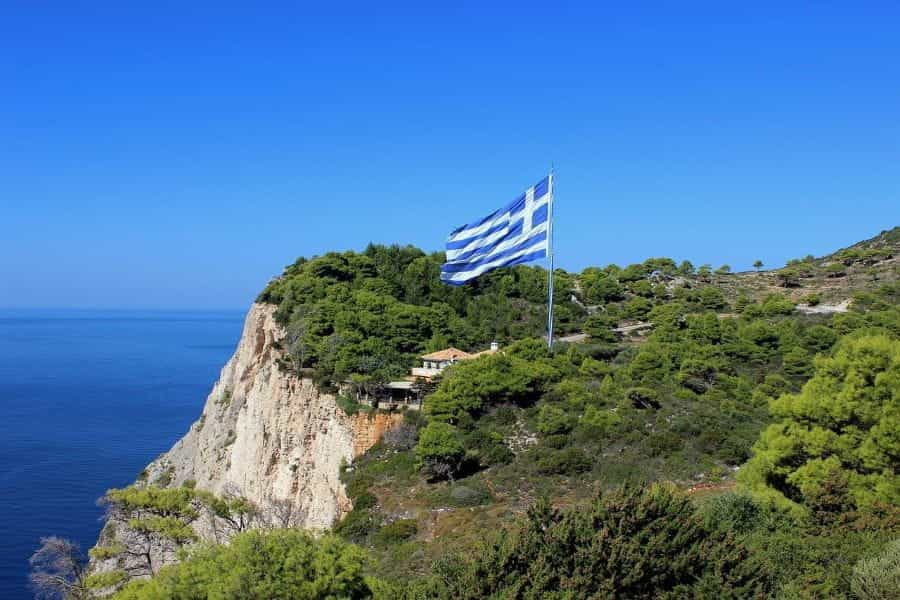IBIA Criticizes Greek Regulations
The International Betting Integrity Association (IBIA) has recently hit out against plans proposed by the Greek government to introduce new regulations for betting. The proposals from the government include the implementation of a 35% tax on gross gaming revenue in Greece and the introduction of age restrictions that would make gambling off-limits to anyone not over the age of 21.

Whilst Greece may seem idyllic for many, the IBIA has voiced its concerns that new regulations such as a 35% tax rate would make it anything but for potential gambling operators in the country. ©12019/Pixabay
The Greek Ministry of Finance submitted the drafts for the proposals to the European Commission in late December of last year. In these drafts, it was confirmed that there would be separate licensing arrangements for online sports betting and other online gambling. These different forms of gambling will have different licensing costs under the plans set out.
Also in these draft proposals were the plans to introduce much stricter controls on any games that make use of randomly generated numbers for their mechanics. Under the proposals, these games would have a limit of €2 per spin and a cap on the amount that could be won, set at €5,000. Any jackpot games making use of these mechanics would have a cap of €500,000.
Additionally, the Greek government plans to limit operators’ ability to advertise such random number generator games. These games will only be advertised on the sites on which they are played. All other forms of gambling will also be subject to the aforementioned age restrictions that the government has proposed but will not suffer from the restrictions on advertising.
Whilst these proposals were sent to the European Commission at the end of 2019, they were required to endure a standstill period that ran until the 1st of April 2020. Since this period has now elapsed, the IBIA has released a statement detailing its opinion of the legislation.
The IBIA’s Response
Overall, the IBIA stated that it was happy with the decision to bring the regulatory framework in Greece into a more modern era. The association went on to voice its concerns with some of the decisions that the Greek government has made. The IBIA is concerned that the reasons behind some of the proposals are not necessarily evidence-based.
The IBIA has said that the Greek government opening the market to operators is a good idea, and a more lenient licensing approach that will allow all operators to apply for a license in the country would benefit Greece on the whole. The association, therefore, does not necessarily take issue with the ideas, but more so with their implementation.
The IBIA is worried about the lack of evidence that the government has used to inform its decisions. According to the association, the decisions are, in fact, contradictory to much of the existing evidence used to generate regulations in Europe.
In other countries that have taken a similar approach to the Greek government, there has been a clear reduction in the number of betting operators that apply for licenses in the market according to the IBIA. One of the main sticking points for the IBIA is the 35% tax rate that the legislation seeks to introduce.
In its statement, the association said that such a high tax rate could be seen as a big deterrent to operators that wish to apply for licenses in the country. There is also a direct correlation between the levels of taxation and the amount of consumer activity that is performed via legal channels. As such, the high tax rate is likely to have the opposite effect to that which is desired and may increase illegal gambling in the country.
The recommendation from the IBIA is that countries that set a tax rate between 10% and 20% of gross gaming revenue tend to have the most success when it comes to pushing players towards legal avenues to gamble. When governments take such an approach, there are also more licenses granted and increased competition in the market, which is ultimately good for the consumer.
There are also concerns from the association that the licenses that are on offer will run a huge cost for the operators. In the proposals, the Greek government set a fee of €3 million to apply for a license in the country. The IBIA has said that this fee would likely deter prospective operators from applying for licenses in Greece.
The age restrictions that the government proposed were also in the firing line from the IBIA. The integrity association said that limiting gambling to those aged 21 and over was effectively discriminatory. This is because the previous gambling monopoly in Greece, the OPAP, allowed gambling from those aged 18 and over.
The IBIA also raised its concerns over the lack of monitoring systems that the government had included in its legislation. The association stressed the importance of maintaining integrity in the market and is of the opinion that the proposals fall short of this hurdle, and wouldn’t necessarily promote credibility and integrity in the Greek market.
The ideas from the Greek government are not the only regulations that the IBIA has been critical of recently. In the past month, the association has also spoken out against the proposals from Sweden to prevent betting on certain markets to reduce match-fixing in the country.



